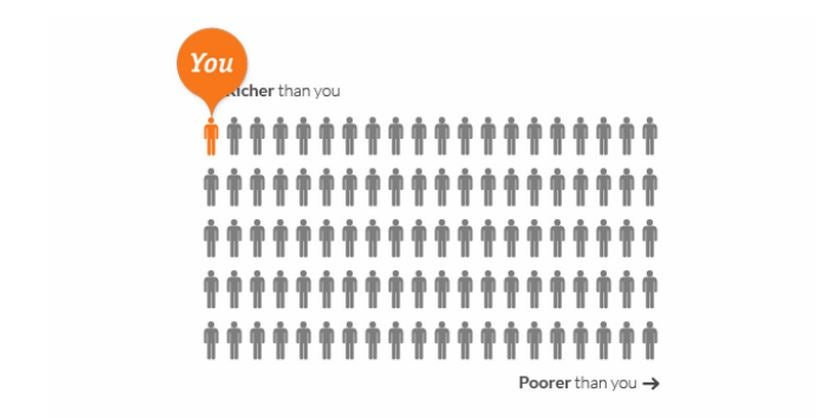The shabby truth about wealth-obsessed London
You now need £100m to join our club of Britain’s 1,000 richest people


On the street is a black velvet Ferrari. And there, in a shop window, is a mobile phone costing £15,000. What? £10m for a house? That’s commonplace. If you live and work in London, the manifestations of extreme wealth are all around, and, for the most part, we take them for granted. The Sunday Times publishes its Rich List, and we discover that we have more billionaires per capita of any country in the developed world. The rich are getting richer, we’re told, and we shrug our shoulders and get on with our lives. For some, the extraordinary amount of moolah that’s sloshing around in Britain (or more specifically London) is a source of national pride, evidence that our policy to attract the global super-rich to this country is working, and that we all see the benefit as their wealth trickles down. That’s not, however, how others see us.
I have a friend who lives in Berlin and is visiting London at the moment. She is shocked and depressed by the British obsession with money. She finds the Rich List distasteful in the extreme. Berlin is a very modest city, ever conscious of its history, with a sense of civic responsibility, and where showiness is regarded as crass. The idea that people would celebrate how much money they have, and others would be fascinated by it, is anathema to her.
I know we are obsessed with lists, and this one plays to our rampant voyeurism, but her revulsion forced me to reflect on what it all means. I think she’s right. To most people, it probably is revolting. You now need £100m to join our club of Britain’s 1,000 richest people, was the proud boast of The Sunday Times. Who the hell needs £100m? What can they possibly spend it on after they’ve bought the velvet Ferrari and the jewel-encrusted mobile? In fact, couldn’t that sort of wealth be construed as a source of shame rather than pride. That’s what my friend from Berlin would suggest.
Here, she says, modesty (in material matters) is not even considered as a virtue, and in London this is expressed in the stunning level of conspicuous spending. “It’s almost as if people don’t even care how much things cost,” she said. “In Berlin, we are much more conscious of the value of goods and services.”
None of this is playing politically at the moment. Apart from Labour’s brief flurry about the non-doms, no one is talking about the super-rich, about the unbalanced nature of British society, the massively widening gap between the haves and have-nots, and how London is not just a global financial powerhouse but also a centre of excess and greed. Many of those who constitute the capital’s super-rich are immigrants, too, but you don’t hear Nigel Farage talking about them.
My friend found it remarkable that in some of London’s most prosperous neighbourhoods, many houses are unoccupied for large periods, simply because they are owned as investment vehicles or for tax reasons. This has the inevitable effect, she says, on social cohesion, and the result is that, to a visitor walking down streets where there is hardly a light on, whole neighbourhoods appear desolate.
Sometimes it takes a foreign pair of eyes to see what we’ve been missing. While aspiration and ambition are to be applauded, it’s time that these qualities were measured with something other than pound notes.

Join our commenting forum
Join thought-provoking conversations, follow other Independent readers and see their replies